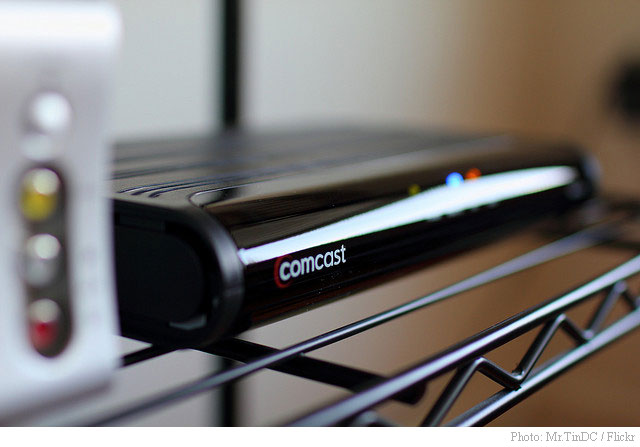If you, like me, still subscribe to cable TV – which probably means you are older than you think you are – chances are good that the worst consumer value in your house is your set-top cable box.
It is almost certainly out-of-date. In fact, it may have been antiquated the day your cable provider delivered it to you. The provider installs whichever updates it chooses whenever it wants, and it collects data about your viewing habits without either compensating or informing you.
As far as the cable company is concerned, that box is the gift that keeps on giving. Month after month, year after year, you keep paying for it, long after your provider has recouped its brand-new value. If they could, cable companies would force you to rent your TV from them too.
Cable companies did not invent this business model. Ma Bell probably did, back when AT&T (T) – in its previous incarnation as America’s near-universal landline company – provided both the local and long-distance networks and had monopoly power over all the equipment connected to them. The Federal Communications Commission broke up this monopoly in the 1980s, and suddenly we were all free to buy our own phones and phone-based equipment. Almost overnight, faxes and answering machines became ubiquitous. Everyone who liked their phone kept their phone; everyone else found one that they liked better.
It is long past time for the FCC and federal antitrust regulators to break the cable monopoly over set-top boxes. Cable companies have long used lobbying power on Capitol Hill, in statehouses and in local governments – from whom they get their monopoly franchises in many places – to prevent this outcome, but the ice may finally be thawing.
In February, the FCC proposed a rule to open competition in the set-top box market and set a 60-day comment period, as is the agency’s general practice with complex matters. Earlier this month, President Obama took the unusual step of weighing in on the proposed rule, backing regulators’ attempt to boost competition. In an interview with Yahoo Finance, the president said, “The more competition we have, the more products, services, innovation takes place.” He has argued that both individual consumers and the overall market will benefit in the long run.
The administration filed comments on the proposed FCC rule to reflect the president’s stance. The White House team explained the move in a blog post that positioned set-top boxes as the first, representative step in a broader initiative to encourage competition in industries that currently lack it. Obama also issued an executive order calling on federal agencies to generate reports on specific areas where regulators can take further action to increase business competition in a variety of industries.
Cable providers have pushed back hard, both against the proposed rule and the Obama administration’s endorsement of it. AT&T went further, outright accusing the administration of exerting improper pressure on the FCC’s decision, according to The Wall Street Journal. The White House countered that it has always been allowed to comment on the FCC’s actions, but that it refrains from doing so except on issues of utmost importance to the president.
Unsurprisingly, many tech companies that have long pushed to open the set-top box market lauded the idea. Online content providers, such as Google, argue as the president does that giving customers greater choice will encourage innovation and spur technological advancement. The cable companies, which have long been mostly exempt from pressure to innovate where their hardware is concerned, have good reason to be worried. But that does not make their arguments any more sound.
We already have a variety of devices that let you stream content to your TV, including external gadgets like Roku and Internet-enabled TVs with streaming access baked in. Forcing set-top boxes into competition with one another and with providers of other sorts of entertainment could lead all sorts of interesting places in the long run. Customers will support or reject these changes with their wallets; that is, after all, the way competition is supposed to work.
I don’t know about you, but I plan to replace a lot of my cable boxes as soon as I have the option. And if I’m not given the opportunity soon enough, eventually I will follow the millennials’ lead and start replacing the cable companies themselves.
Disclaimer: This page contains affiliate links. If you choose to make a purchase after clicking a link, we may receive a commission at no additional cost to you. Thank you for your support!



Leave a Reply